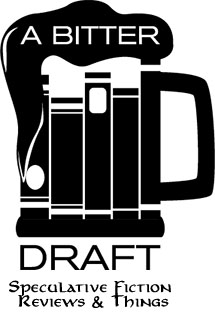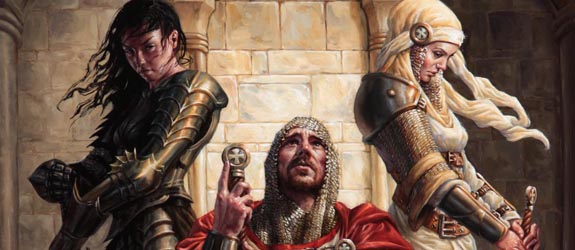I’m asked to write about religion a lot, primarily because of Miserere’s themes, and since it’s my job as the author to present this topic from a different angle every time, I had to think about this one for a bit.
Religion.
*taps fingers*
Okay, let’s approach it this way:
My number one rule, especially when working with an established religion such as the ones I use in Miserere, is to always be respectful of both the belief system and the adherents. I’ve seen the religious fanatic portrayed as a foaming at the mouth caricature so many times, I’m starting to roll my eyes when I see it coming. What people tend to forget is that most fanatics are quite reasonable and make a lot of sense to the uninitiated. That is what makes the fanatic so very dangerous. An extremist knows the religion intimately so he or she knows what rules to break. He or she also tends to have an innate knowledge of psychology and how to take advantage of group-think and people’s fears.
The fanatic usually believes their own rhetoric one hundred percent. Extremists can be found in any religion and can often be seen outside of a religion, with atheists and politicians falling into the latter camp. In other words, fanatics come in all flavors and aren’t confined to religion.
What I wanted to accomplish with Miserere was to give an even-handed treatment to religion and avoid the fanatical aspects altogether. I spent a lot of time reading about Christianity and Judaism to help me with the tone and the religious aspects of Miserere. For example, some readers have yet to pick up on the fact that in the Citadel’s cathedral, I specifically mention a resurrection cross stands behind the pulpit. A lot of people have said that Miserere is too Catholic, but you won’t find a resurrection cross in a Catholic church. The resurrection cross is a Protestant symbol and I mixed that image with Catholic and Eastern Orthodox symbols to show how all the various sects of Christianity were housed under one roof.
It’s impossible to be intimately familiar with the practices of all the religions; however, I’m very lucky in that I have a friend who I can call on when I need information about Judaism and another friend who is willing to answer my questions about Hinduism. I have yet another friend who I can call on to ask for advice about Wiccan practices, and I will soon be seeking someone to help me out with aspects of Islam as well. I can’t possibly know everything about every belief system. My job as the author is to be informed enough about the religions themselves so that I can ask reasonably intelligent questions. Beta readers are invaluable in assisting me with details.
Another aspect of world-building, especially one that uses religion as a basis of the magical system, is for the author to thoroughly understand the cultural aspects and political situation in the world that is being represented. This is a personal feeling of mine, nothing that I can base a single fact on, however, I’ve found that the more advanced the civilization, the less reliance one finds on religion and/or gods and goddesses.
In Violence and Miracle in the Fourteenth Century: Private Grief and Public Salvation, scholar Michael E. Goodrich draws a direct correlation between the violence and uncertainty of the fourteenth century and sudden surge of “rescue” miracles. Goodrich states that:
“The oft-noted breakdown of the medieval consensus which accompanied the ‘terrors’ of the fourteenth century and the decline of its characteristic institutions, such as the feudal system, the papal church, and the democratic commune, enhanced reliance on the mystical, irrational, magical, and miraculous.”
When people cannot rely on man-made institutions to protect them, they often fall back on the supernatural for protection. People in the twenty-first century might think of this type of reliance as a psychological placebo, but when a human being is faced with absolute helplessness, the dynamic of self-reliance sometimes shifts to a dependence on supernatural forces.
A lot of fantasy novels incorporate some form of societal breakdown (war, pestilence, etc.) that enables the belief in the supernatural to be more credible. It’s the author’s job to make the supernatural forces as authentic as possible to the society he or she creates. Understanding a little bit about comparative religion and basic psychology can often help create the kind of group-think inherent to close-knit societies in medieval settings.
Okay.
That is all I’ve got on religion for today. Ask a question in the comments, or tell us your favorite fantasy that uses religion in a believable fashion. I’m interested to hear what you have to say.
 Teresa Frohock has turned her love of dark fantasy and horror into tales of deliciously creepy fiction. She is the author of Miserere: An Autumn Tale
Teresa Frohock has turned her love of dark fantasy and horror into tales of deliciously creepy fiction. She is the author of Miserere: An Autumn Tale

Too many fantasy novels, IMO, suffer from the “Crystal Dragon Jesus” problem, with unrealistic or blatantly ripped off religions with the serial numbers filed off.
I want to give a shout out here to Saladin Ahmed’s THRONE OF THE CRESCENT MOON–which has a religion similar to Islam, but its not. And the diversity of belief and the believers and worshippers is interesting, and sometimes hilarious (Abdoullah versus Rasheed, for example)
I’ve heard many good things about Saladin Ahmed’s THRONE OF THE CRESCENT MOON.
I’ve never heard the phrase “Crystal Dragon Jesus” before but that’s kind of cool! 😉 Although there is a big difference between using fantasy to proselytize and using religion to create a believable society. Fantasy novels don’t need religion in order to create believable societies, but not all fantasy novels that use religion are proselytizing. If that makes any sense.
Thanks for this post, Teresa! Religion in fantasy is a favorite topic of mine, and unfortunately, it is usually not done well, IMHO. What other fantasy novels do you think depict religion well?
Hi, Kenton, I think my absolute favorite is Marion Zimmer Bradley’s The Mists of Avalon. I also love how Tanith Lee handles religion in her stories (with a touch of horror).
Even though it’s not fantasy, I love The Name of the Rose, especially because Umberto Eco captured the raw theological arguments that defined early Christianity and the heretics. My favorite part is when the priests become so adamant about their points of view that they break into a fight. Just some awesome writing and a very entertaining approach toward medieval thought.
Teresa, thanks again. I’ll have to check out The Mists of Avalon.
In my own fantasy novel, I touch on two religons: one based on Navajo belief; the other quasi-Catholic. Being Catholic myself, the latter was easy to craft; the former took a bit more effort, even with the magic of the Internet.
It’s hard to write outside your comfort zone, but I will say this: writing about other religions has given me a deeper understanding and appreciation for other people’s beliefs. It’s hard work, but so worth it in the end.
I think Paul Kearney’s Monarchies of God does it fairly well, though the two religions in it are very clearly Christianity and Islam with different names. The series is historical fantasy-ish in that it’s ‘set’ during the schism of the Ramusian (Christian) church, two popes/pontiffs, the whole business. Kearney’s a great writer and though not much creativity went into coming up with a new religion, it’s still a good story.
My wifi is acting hiccupy so I don’t think that last comment went through. I’m looking forward to reading Kearney’s works too, Patrick.
Though it has been awhile since I read them, I think Katherine Kurtz’s Deryni novels did a good job of integrating religion (roughly based on Catholicism) into the setting,
Hi Richard! I haven’t read those yet, although I’ve heard good things about them. I’ll have to add them to my ever growing list … I think it’s kind of nice to have more good books to always be looking forward to reading. 😉
Teresa,
I highly recommend the Deryni books. I started reading them as a teenager and it was one of my favorite historical fantasy series. I haven’t read some of the more recent books in the series and really should pick them up.
You know, another one that I’m surprised that no one has mentioned is Philip Pullman’s Golden Compass from His Dark Materials (a line straight out of Milton). The Golden Compass uses themes from Gnostic Christianity, which most people aren’t familiar with at all. I also think it’s kind of funny that people who didn’t understand the philosophies behind Gnostic Christianity wrongly called Pullman an agnostic.
As a religious person who is profoundly tired of seeing the tropes of his faith used as cheap signifiers for general human @$$holery, let me just say how thankful I am to see someone actually take it seriously and thoughtfully for a change. I will definitely seek out *Miserere*.
Thanks, Stephen! I hope you enjoy it.
I had been told that Golden Compass was atheist, so I’ve avoided it. Maybe I’ll take a look at it.
Pullman doesn’t say kind things about the Church, but the novel is not atheist, or at least, I didn’t read it that way. In Pullman’s story, he recognizes the universe through the Gnostic viewpoint. I think a lot of the misconceptions about The Golden Compass come through most people’s ignorance of the various forms of early Christianity. Several branches (the Gnostics, the Cathars, etc.) were seen as heretical to the orthodox philosophy that eventually became doctrine. It was when I read The Gnostic Bible that I realized what Pullman had done.
Another excellent book that ya’ll might want to look at is Alex Bledsoe’s The Hum and the Shiver. Alex portrays a Methodist minister who is quite tolerant and reflects a very balanced view of the clergy.